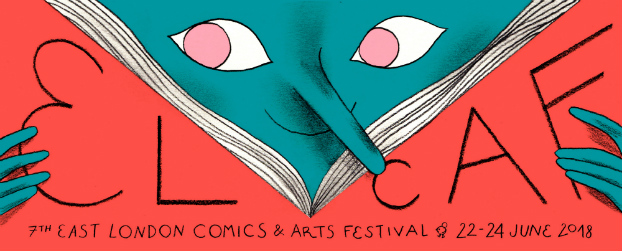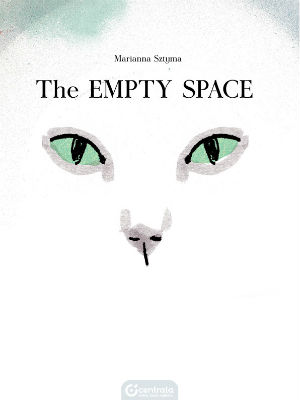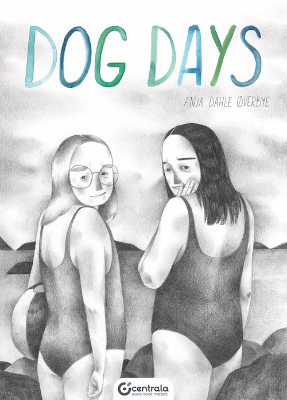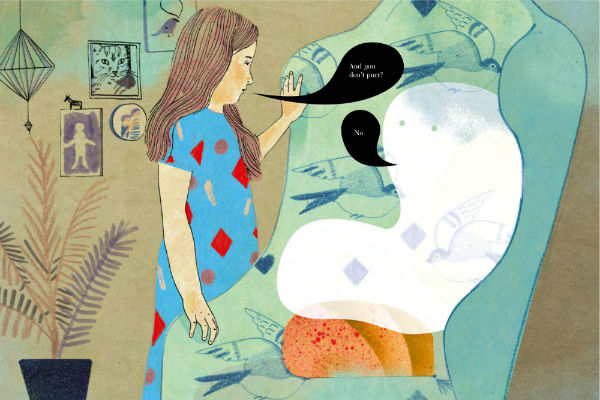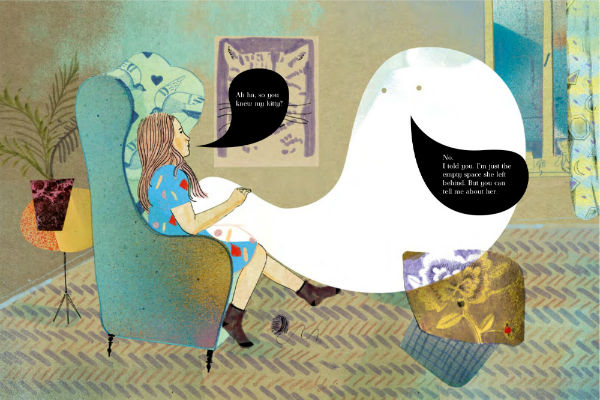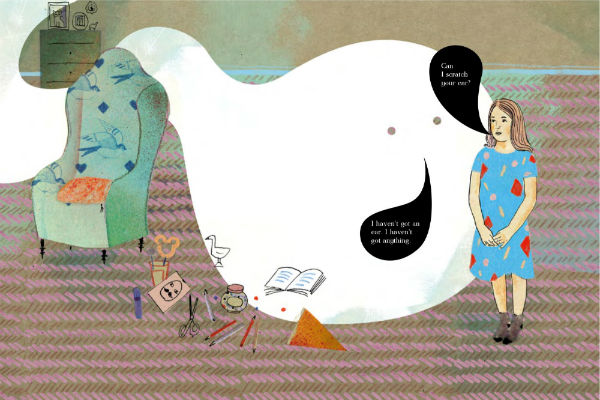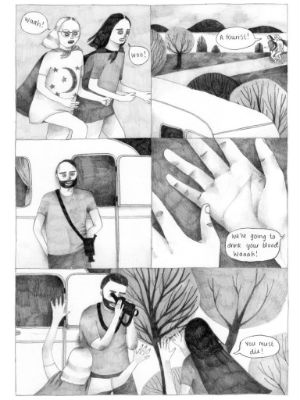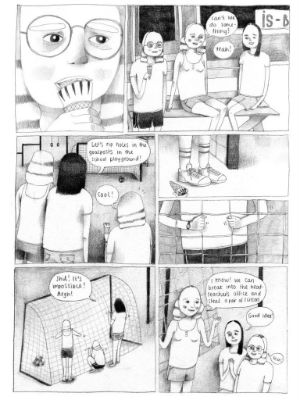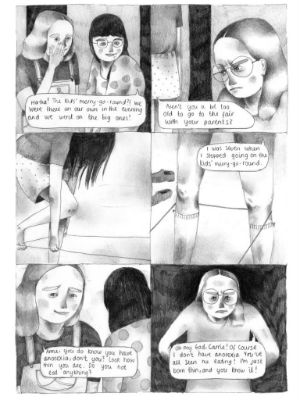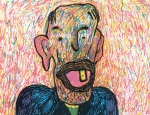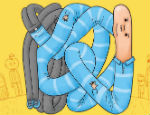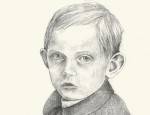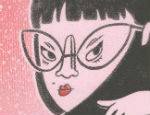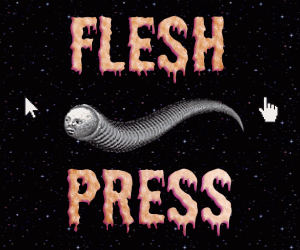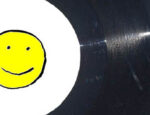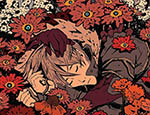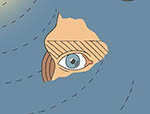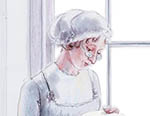ELCAF FORTNIGHT!
Centrala are a publishing house which originated in Poland, before making the move to South London, focussed primarily on translating and distributing the work of European artists. One of their most recent volumes, Anja Dahle Øverbye’s Dog Days, was published through the financial support of Norwegian Literature Abroad, an organisation dedicated to the translation and dissemination of work across the world. Bringing these artists to a wider, international audience is a noble intention, but a noble intention which has nonetheless resulted in two books — both Øverbye’s, and Marianna Sztyma’s The Empty Space — which made me very sad.
Intentionally so! Sztyma’s book is the shorter of the two, with a collage aesthetic reminiscent of Eric Carle. The titular “empty space” represents the absence of the main character’s recently-deceased cat, a physical negation that cuts into the beautifully rendered living spaces of the young girl. It is represented as a ghostly white being overlaid atop paint-flecked walls, the crayon details of her furnishings, the ink lines of her hair. When the humongous spectral form emerges from the empty cat carrier, the girl asks, “Can I scratch your ear?” It replies, “I haven’t got an ear. I haven’t got anything.”
One of my cats died earlier this year. We got him when I was a child, and I was the one who named him. When I returned home from university between semesters, he was always waiting on top of the sofa by the front door, greeting me with a croaky whine as he stretched himself awake. My visits home got less frequent as I got older, but I was always excited to see my cats. His death was both sudden and not. We knew he was old, and his black fur had grown thinner around his face and haunches. He ate the same amount as before, but had trouble putting on weight. It was still a surprise when my dad rang to break the news, but it took a while to fully sink in. Besides a drunken weep in bed at 4am the following week, it really hit me when I returned home a month later and felt his absence where before he had been a constant presence.
Sztyma’s book is gorgeous, recalling the old Sixties kid’s books we thrifted from charity shops when I was a child. The empty space itself is a genius, poetic conceit, both as a design and as a visual metaphor for the loss of a pet. Similarly, the strength of Øverbye’s Dog Days is the way she hones in on a very particular, complex and painful feeling. Apparently named for the humid summer days where “muck floats up to the surface of water, food goes bad and dogs may more easily go mad,” it follows the school holidays of bespectacled Anne as she navigates her first friend break-up, tests the boundaries of play and cruelty with other neighbourhood kids, and dresses up as a vampire.
Øverbye’s pencil drawings have almost the opposite aesthetic to Sztyma’s collage. The book is a wistful monochrome, with smudges and cross hatching and visibible line marks for shading. Both the use of pencils and the way she draws the kids — the proportions not always consistent, their posture often hunched and unnatural, representative of the way your body awkwardly fluctuates as you enter adolescence — similar to Valentine Gallardo or Yumi Sakugawa. The difference is that, where the character’s figures and surroundings are often abstracted and rendered in an unsteady line, Øverbye pays a great attention to the character’s faces.
The positioning of their eyebrows, flushed cheeks, the exact shape of their mouth and lips betray a lot, where their body language or dialogue may be more reserved. And there are a lot of messy, complicated pre-teen feelings explored in Dog Days. Anne has to contend with her BFF Marielle striking up a new friendship with older girl Carrie, putting her in the awkward situation of being the put-upon victim of their bullying whilst wanting to retain her relationship with Marielle. It’s a common experience that’s handled in a nuanced, but no less painful, way here, as Anne then passes on her hurt feelings by teasing a girl younger than her.
Not that it’s all doom and gloom; as The Empty Space hits upon a bittersweet feeling of both grief but also acceptance following the death of a pet, and so too does Dog Days illustrate the carefree wonder of childhood summer holidays — especially in her beautiful, simple renderings of the Norwegian countryside — along with those more equivocal, complicated and adult feelings seeping in at the sides. These are a pair of simultaneously complementary and contrasting books that hone in on two specific feelings, two specific periods in most people’s lives, and captures them with a rare clarity, artistry and authenticity.
Marianna Sztyma, Anja Dahle Øverbye (W/A) • £12.00 each
Centrala will be exhibiting at ELCAF. For more information on them visit their site and online store here. You can also follow them on Twitter here.
Catch up on all our ELCAF Fortnight articles to date here. ELCAF runs from June 22nd-24th. Full details on the ELCAF site here and you can also follow the festival on Twitter here.
